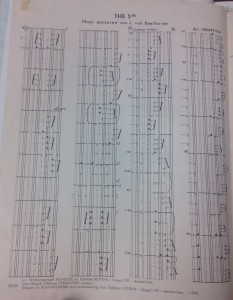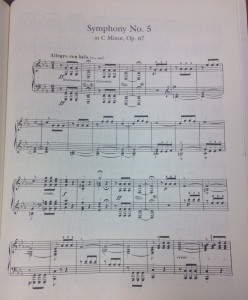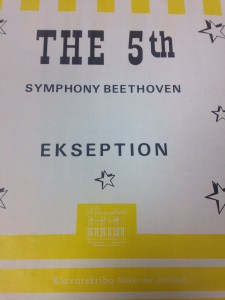Whether you actively compose music, perform it, or just simply enjoy listening to it, the recent developments surrounding music copyright and the music industry may be of interest to you.
“Blurred Lines” Case Blurring the Lines for Artists
In early March, a California jury decided that Pharrell Williams and Robin Thicke’s song “Blurred Lines” did in fact infringe upon the copyright for the 1977 hit “Got to Give It Up” held by the Marvin Gaye estate. (Not familiar with the case? You can read a brief summary of events and listen to both songs in this article from the Guardian.)
Why does this matter? As students, you are able to exercise certain rights under Fair Use. But as soon as you leave the university, this all changes. You may not study/play/compose popular music, but if you write any kind of music then this case is relevant.
This case is a scary development in music copyright law and many fear it may set a legal precedent that negatively impacts artists’ ability to produce creative works. In order to understand why, we’ll need to take a look at copyright law.
In the United States Constitution, Article I, Section 8, congress is given the power to
“Promote the Progress of Science and useful Arts, by securing for limited Times to Authors and Inventors the exclusive Right to their respective Writings and Discoveries.”
This protection is extended to original works of authorship fixed in any tangible medium of expression in the following categories:
- literary works;
- musical works, including any accompanying words;
- dramatic works, including any accompanying music;
- pantomimes and choreographic works;
- pictorial, graphic, and sculptural works;
- motion pictures and other audiovisual works;
- sound recordings; and
- architectural works.
“Musical works, including any accompanying words” and “sound recordings” are of relevance to any copyright case involving music. In this case, the Gaye estate only holds the copyright for the musical work “Got to Give It Up” and not for the sound recording. There was no infringement upon or sampling from the sound recording you can hear today.
Although it is no longer required to register a work with the copyright office because a work is immediately copyrighted when it is fixed in a tangible medium, in 1977 when Gaye wrote “Got to Give It Up,” registration was required. Now, what is most likely filed with this registration is the “lead sheet” for the song, or a document that only has the melody, chord progressions, and lyrics. It will not contain the other aspects of the final production, the “feel” and characteristics of that musical style during that time period, that were argued as infringement. Curious what helped sway the jury to make their decision? You can read the musicologist’s full report from the hollywoodreporter.com.
So why is this verdict scary for artists? Well, it sets a precedent that any work showing influence from another work can be considered copyright infringement. Plus, it questions our understanding of which aspects of music are copyrightable.
U.S. Copyright Office Releases Study “Copyright and the Musical Marketplace”
Back in February, the United States Copyright Office released a 202 page (plus appendices!) report discussing the current music licensing framework and its place in the twenty-first century. The report reviews the current system, identifies its shortcomings, and makes several recommendations that would improve current conditions. Some key highlights from the report include:
“The Copyright Office’s study revealed broad consensus among study participants on four key principles:
- Music creators should be fairly compensated for their contributions.
- The licensing process should be more efficient.
- Market participants should have access to authoritative data to identify and license sound recordings and musical works.
- Usage and payment information should be transparent and accessible to rightsowners.
“Additional principles that it believes should also guide any process of reform:
- Government licensing processes should aspire to treat like uses of music alike.
- Government supervision should enable voluntary transactions while still supporting collective solutions.
- Ratesetting and enforcement of antitrust laws should be separately managed and addressed.
- A single, market‐oriented ratesetting standard should apply to all music uses under statutory licenses.
“The Copyright Office believes that any overhaul of our music licensing system should strive to achieve greater consistency in the way it regulates (or does not regulate) analogous platforms and uses.
- Regulate musical works and sound recordings in a consistent manner.
- Extend the public performance right in sound recordings to terrestrial radio broadcasts.
- Fully federalize pre‐1972 sound recordings.
- Adopt a uniform market‐based ratesetting standard for all government rates.”
The full report can be accessed on the Copyright Office’s website.
There have been a variety of responses to the report, from supporting the copyright overhaul to believing it will do more harm than good. ASCAP President Paul Williams believes the report to be an “important step towards meaningful reform” while the Digital Media Association feels the report “reflects a missed opportunity.” What do you think?
The Fair Play Fair Pay Act
Recently, Congressman Jerrold Nadler (D-NY) and Congressman Marsha Blackburn (R-TN) introduced a bipartisan legislation called the Fair Play Fair Pay Act. This act would primarily create a terrestrial performance right, ensuring that artists would receive fair pay when their performances are broadcast on AM/FM radio. It would also end the dispute between terrestrial radio stations who do not currently pay performance royalties and the internet and satellite competitors who do pay these royalties. You can read a press release from Congressman Jerrold Nadler’s website for more information and a statement of support from SoundExchange CEO Michael Huppe.




